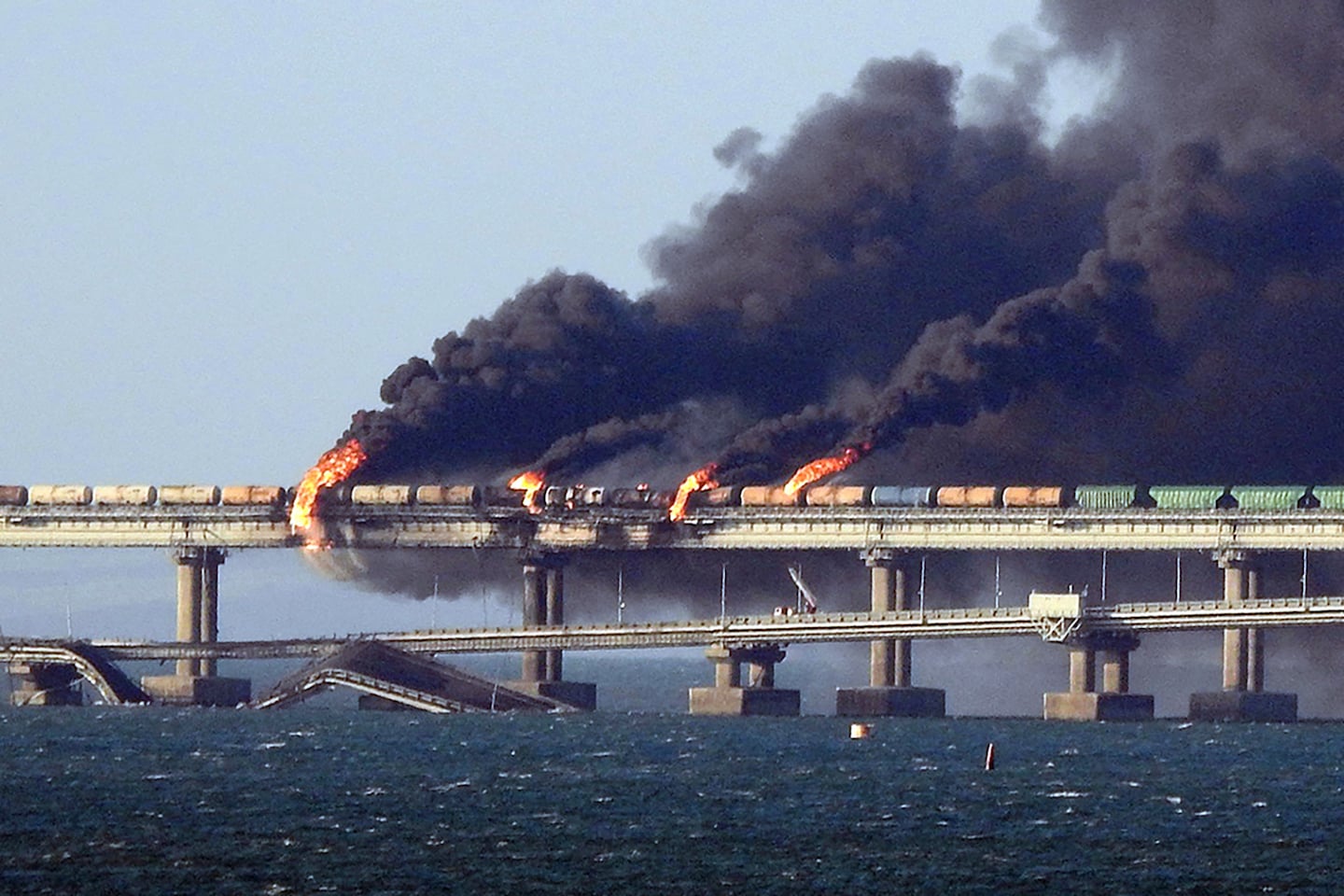The findings, from a joint survey conducted in November by the Chicago Council on Global Affairs and the Moscow-based Levada Center, were released Tuesday and suggest that even if Russians are tired of the war, peace negotiations between Kyiv and Moscow could face significant constraints.
Indeed, despite widespread perceptions that the war has been a disaster for Moscow, the survey suggests few Russians view themselves as on the losing side — or at least in a position where they need to give something up in order to achieve peace.
“It is unclear exactly what, if any, meaningful concessions Russians would be willing to make from their side, aside from a cease-fire and prisoner exchanges,” a report announcing the survey results found.
That could be a major problem. Ukrainian President Volodymyr Zelensky has insisted that Crimea will be returned to Ukrainian control under any potential peace deal, calling it the “restoration of true peace” in October.
Surveys of Ukrainians show retaking of Crimea has high levels of support, with one poll from September finding that nearly nine out of ten Ukrainians believed Kyiv should not allow Russia to keep any Ukrainian territory — even if that meant prolonging the conflict.
The survey was conducted between Nov. 24 and 29, with 1,601 Russian adults interviewed face-to-face in their homes by the Levada Center, one of Russia’s most widely-respected independent polling companies. Demographic data were used to weight the answers to make them nationally representative, with a margin of error between 3.4 percent and 1.5 percent.
Polling in authoritarian countries such as Russia is complicated, but the survey’s authors said earlier this year they found no evidence that respondents were unwilling to share their true feelings with interviewers. Instead, the authors suggested that the high levels of support for the war were consistent with the country’s tightly controlled media landscape, which often portrays a rosy view of the conflict.
According to the latest polling data, three-quarters of all Russians support Moscow’s “special military in Ukraine,” just six points behind the record 81 percent approval registered by Levada in March, shortly after the war began.
Less than a third of Russians said that the war was unsuccessful, compared to 53 percent who said it was successful.
But there are also signs of a growing lack of enthusiasm, perhaps even disquiet, about the war.
Shortly after Russia invaded, the Chicago Council-Levada research showed Russians generally viewed the conflict as a defense of Russian speakers or others in Donbas. But Russians now seem far more uncertain of the war’s aims, with more than one out of five (22 percent) saying they could not describe the purpose of the war — an increase of 13 percent since March.
Meanwhile, the percentage of Russians who described the war as defensive dropped from 43 percent to 27 percent.
And after nine months of war and numerous setbacks for Russian forces, Russians were found to slightly favor negotiations, with five to four in favor of starting talks and a slim majority, 53 percent, in favor of negotiations overall.
More Russians are in favor of starting talks when reminded of the costs being inflicted upon Russia, with 62 percent supporting talks if they would end the deaths of Russian soldiers.
But if peace talks were to take place, there was little support for concessions from Moscow among the Russian public. 78 percent of Russians said it would be unacceptable to return Crimea to Ukraine, while 66 percent said the same of the eastern Donbas region, which remains occupied by Russian forces and their Ukrainian allies.
Almost eight out of ten Russians said it would be acceptable to allow Ukraine to resume shipping grain to other countries, while nearly all favored a reciprocal exchange of prisoners of war.
The Chicago Council-Levada poll did not break down the demographics of its Russian respondents but did ask about their media consumption. Notably, those who got their news through Telegram channels, friends and relatives and social media, rather than the largely state-aligned television networks and newspapers, were far less likely to view the war as successful.
Scott Clement contributed to this report.



